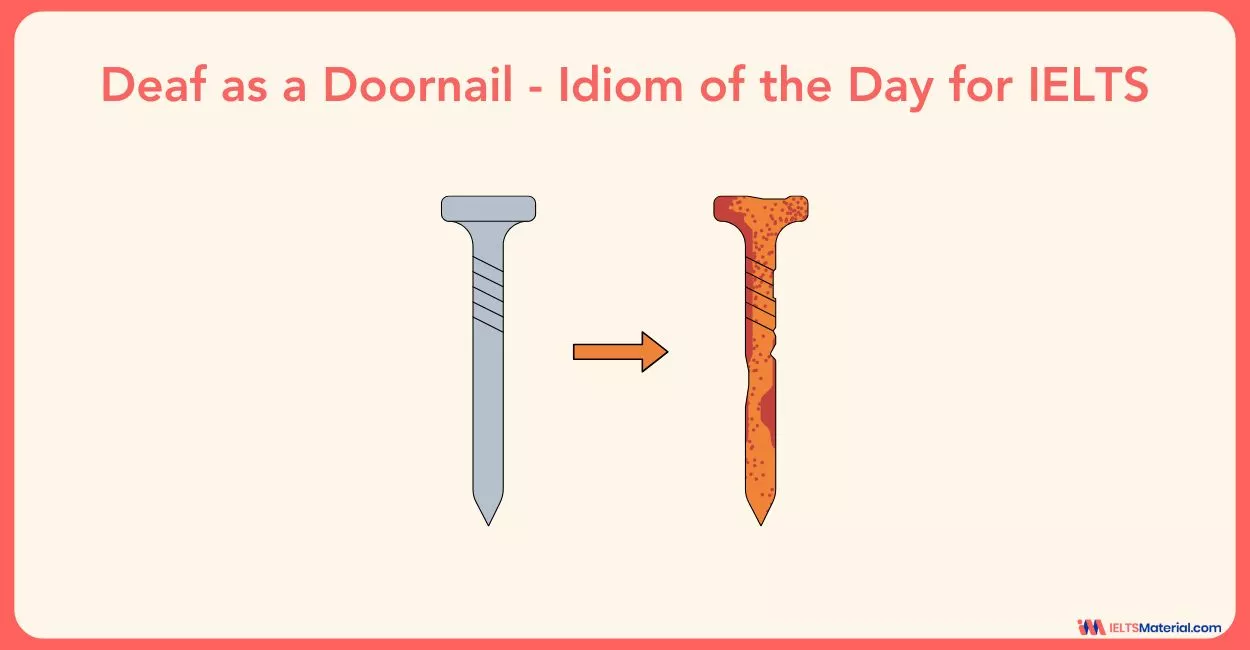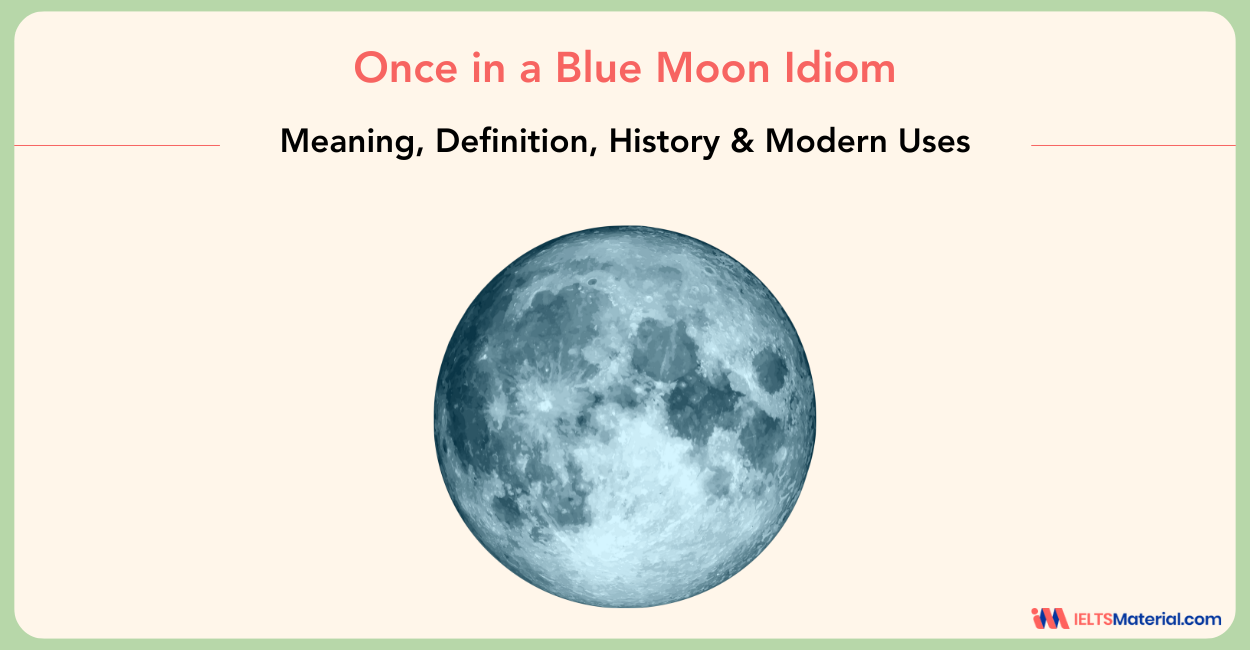Add Insult to Injury - Idiom of the Day for IELTS
4 min read
Updated On
-
Copy link
Do you think you know what the idiom 'Add Insult to Injury' really means? Find out its meaning, origin, and real IELTS Speaking & Writing examples now to boost your lexical resources band score in no time!
Table of Contents
- Meaning of the ‘Add Insult to Injury’ IELTS Idiom
- Where Did the Idiom ‘Add Insult to Injury’ Come From?
- Synonyms of the ‘Add Insult to Injury’ Idiom
- Antonyms of the ‘Add Insult to Injury’ Idiom
- Examples to Understand the Usage of the ‘Add Insult to Injury’ Idiom in Sentences
- A Sample Scenario to Use the Idiom ‘Add Insult to Injury’ in IELTS Speaking Cue Cards
- A Sample Scenario to Use the Idiom ‘Add Insult to Injury’ in IELTS Writing Task 2

Limited-Time Offer : Access a FREE 10-Day IELTS Study Plan!
Making use of suitable idioms in your speech while conversing in English in an everyday setting will clearly enhance the way you convey an intended message.
One of the commonly used idioms these days is ‘Add Insult to Injury.’ This is especially used by many in both casual and professional discussions, mainly when talking about a bad event that happens to a person who is already facing a tough situation; That is what makes it perfect for the IELTS exam.
In this article of ours, we will learn the meaning, origin, and usage of the ‘Add Insult to Injury’ idiom, along with examples of how to use it to your advantage when preparing for the IELTS Speaking and Writing!
Meaning of the ‘Add Insult to Injury’ IELTS Idiom
The idiom of “add insult to injury” means to make an already bad situation even worse. This describes scenarios wherein someone is already suffering misfortune, and another act, comment, or an event intensifies that already existing suffering.
In the IELTS test, this idiom is handy when talking about challenges, disappointments, or even unfair situations. Using it shows the examiners that you can convey subtle emotional nuances through idiomatic expressions of the English language.
Ready to improve your IELTS idiom game with our best experts? Book a FREE Demo!
Where Did the Idiom ‘Add Insult to Injury’ Come From?
This phrase dates back to Aesop’s Fables, an ancient collection of moral stories. In a tale, a man is bitten by a street dog. While he is already in pain, a stranger mocks him, suggesting he should feed the dog bread soaked in his own blood in order to heal the wound. This cruel comment worsens his suffering and hence the idea of “adding insult to injury.”
Over the centuries, this expression became a widely recognized idiom in everyday English, symbolizing the act of worsening an already tough situation with words or actions.
Synonyms of the ‘Add Insult to Injury’ Idiom
- Making matters worse
- Rubbing salt into the wound
- Adding fuel to the fire
- Pouring oil on the flames
- Deepening the wound
Antonyms of the ‘Add Insult to Injury’ Idiom
- Healing the wound
- Making amends
- Easing the pain
- Improving the situation
- Reducing the damage
- Offering comfort
Examples to Understand the Usage of the ‘Add Insult to Injury’ Idiom in Sentences
- The organisation refused Jack’s application for this position, and to add insult to injury, refused to pay his salary for two months he did an internship.
- After the conflict, he left away, then to add insult to injury he broke up with her on the next day.
- The working environment of my company is very bad, the leader is always adding insult to injury when he criticises his subordinates harshly.
- Losing the finals was painful enough, but to add insult to injury, their best player also got injured.
- She was already upset about failing the semester test, and to add insult to injury, her teacher scolded her in front of the class.
- I lost my purse, and to add insult to injury, someone yesterday used my credit card.
- The company’s workers didn’t get paid this month, and to add insult to injury, their jobs were then terminated.
- It was raining all day yesterday, and to add insult to injury, the electricity totally went out.
Grab our fast-selling IELTS Vocabulary Ebook to learn a wide range of words for your IELTS test!
A Sample Scenario to Use the Idiom ‘Add Insult to Injury’ in IELTS Speaking Cue Cards
In the IELTS Speaking Part 2, if you are asked to describe a disappointing day, you could say:
“She missed her train to an important exam, and to add insult to injury, when she reached the exam venue late, they didn’t allow her to enter.”
This perfectly fits the idiom because the second misfortune event intensifies the first one.
A Sample Scenario to Use the Idiom ‘Add Insult to Injury’ in IELTS Writing Task 2
In the IELTS Writing Task 2, idioms should be used properly and appropriately in semi-formal or formal contexts. For instance, in an essay about environmental problems, you could write:
“Climate change is already threatening global stability by causing a rise in sea levels and extreme weather. To add insult to injury, many of the governments continue to prioritize economic growth over environmental protection, and in turn, this makes the situation even worse.”
In this, the idiom emphasizes that the governments and their poor decisions are not only failing to address climate change but are also actively worsening it. This will directly make your argument stronger and will show the examiner of your ability to use figurative language effectively in the academic writing part.
Also Check:
- 25 Common Idioms in IELTS Speaking
- Common Idioms List for IELTS Speaking
- Cash-flow Problem - Idiom of the Day for IELTS
- Once in a Blue Moon Idiom: Meaning, Definition & Synonyms
- A Leopard Cannot Change His Spots – Idiom of the Day for IELTS
- Play It By Ear Idiom: Meaning, Origin, Usage & Exercises
- The most Common Idioms to Boost Your IELTS Score – Topic : Help and encouragement
Explore IELTS Resources

Start Preparing for IELTS: Get Your 10-Day Study Plan Today!
Recent Articles

Kasturika Samanta

Prity Mallick

Nehasri Ravishenbagam





Post your Comments